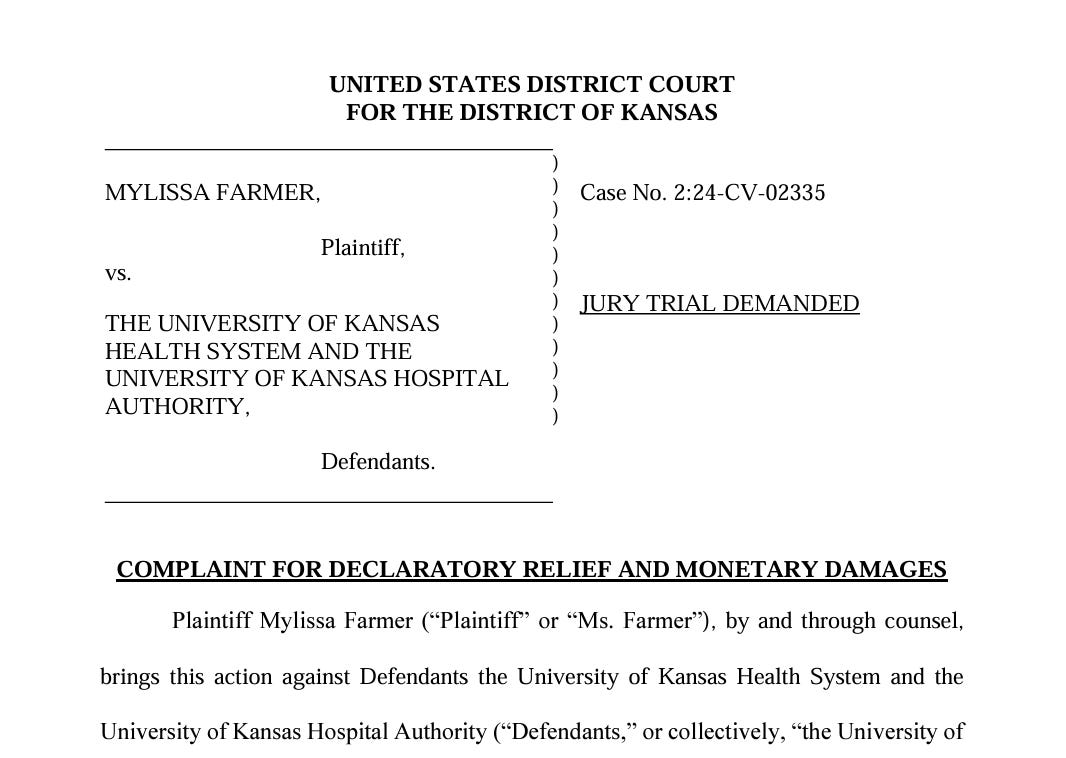Woman sues Kansas hospital for not providing emergency abortion
Plaintiff in new lawsuit filed complaint that said a major hospital system failed to adhere to EMTALA
A woman sued a Kansas hospital in the state for failing to provide an abortion in an emergency situation.
Mylissa Farmer, the plaintiff, filed a complaint on Tuesday in the U.S. District Court for the District of Kansas. The incident that is at the core of the complaint dates back to Aug. 2, 2022, when Farmer sought an abortion at the University of Kansas Health System.
Farmer’s water had broken far too early. She was just 18 weeks into her pregnancy, which was no longer viable. It put her at risk for severe blood loss, sepsis, infertility, and death.
Farmer’s lawyers contend that she was entitled to care under the Emergency Medical Treatment and Active Labor Act, which requires doctors and medical staff to provide necessary care in ER settings.
“Ms. Farmer arrived at TUKH heartbroken, in pain, and terrified for her life, but believing that the medical professionals in TUKH’s emergency room would provide her with the care she needed, as they were legally required to do,” the complaint said. “Instead, TUKH refused to perform even routine emergency checks, such as taking Ms. Farmer’s temperature and assessing her pain.”
Farmer later obtained a life-saving abortion at an Illinois clinic.
Farmer had arrived at the Kansas hospital the night of the election that determined the fate of abortion rights. According to the complaint, the hospital was reluctant to provide care until the political situation had been clarified. Voters shot down an abortion ban that night.
In May 2023, the U.S. Department of Health and Human Services and Centers for Medicare & Medicaid Services found that TUKH violated EMTALA when it refused to provide emergency abortion care to Ms. Farmer.
Farmer is seeking relief for the decisions made by staff at the hospital system.
In June, the U.S. Supreme Court issued a ruling on EMTALA. The lawsuit, Moyle v. United States, centers on whether an Idaho abortion ban conflicts with a federal law that ensures universal standards of care within emergency rooms. he Biden Administration challenged an Idaho law known as the Defense of Life Act, which prohibits abortions unless they save the mother’s life.
The Supreme Court decided that it would permit hospitals in Idaho to perform abortions in emergency settings. But the victory was temporary if the opinion was in its final form. The lawsuit went back to the Court of Appeals.




